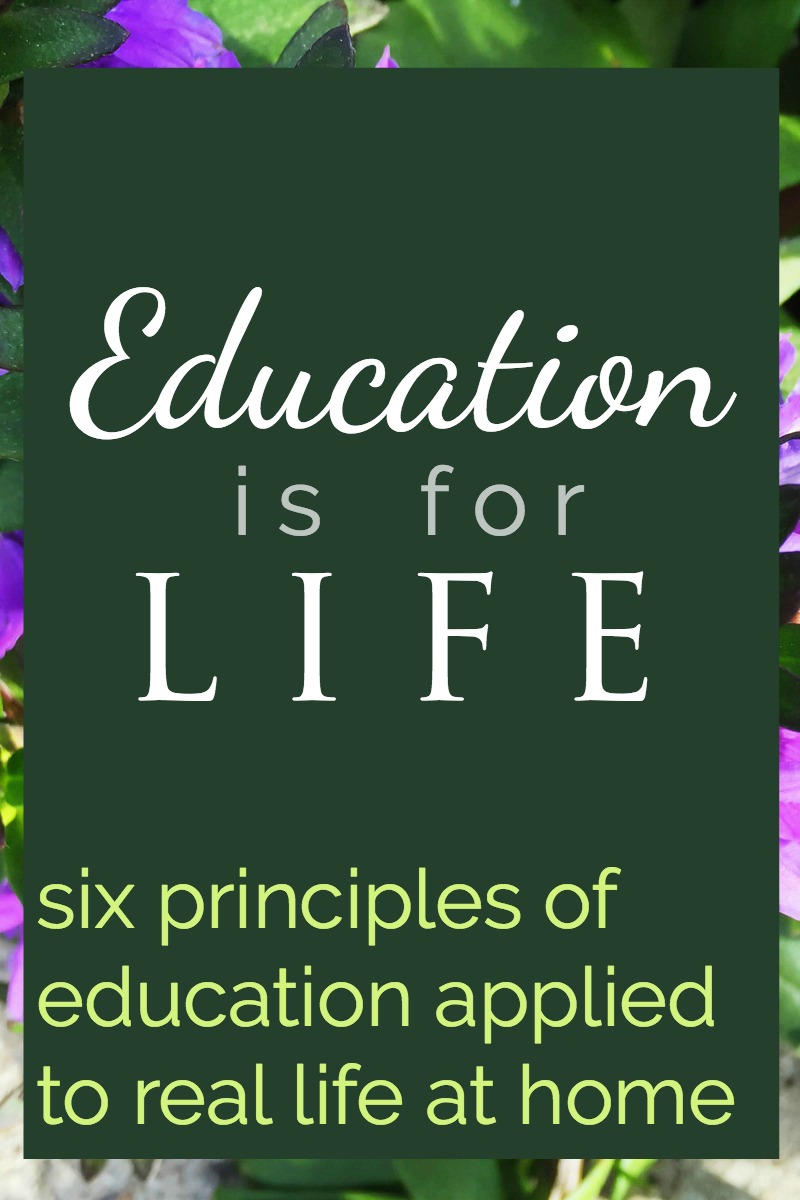Christopher Perrin has begun a great free video series developing eight principles of classical education – none of which require rote parroting of bare facts. He is talking about the core beliefs and practices that have comprised true education (formation of the whole person) throughout the ages.
As I was listening to these and thinking about them, I thought that if these are the components of true education, which is the formation of the whole person, then really they are principles for living and not just for school. If these things are True, Good, and Beautiful, then we wouldn’t compartmentalize them for the young only; indeed, we would be training the young in them because we want them to continue to walk in these ways the rest of their lives. If these principles are for life, then they are ways we ourselves can live fully, not only ways to teach and re-educate ourselves alongside our children.

We learn as a part of homemaking, as a part of any vocation, and as a part of any hobby. We should be always seeking to mature and to grow in wisdom, and these principles tell us the best paths for doing so.
So, I wanted to try an exercise to follow this thought through. I combined a few of his principles and others that I have gleaned from my readings and listenings over the years into 5 principles, and I want to develop not how they apply to educating our children, but how they apply to simply living well and growing in wisdom no matter our stage in life or vocation.
After all, these Latin mottos were not originally made solely by educators for educators. These Latin mottos were proverbial wisdom. They are supremely applicable to education, but also to simply living well.
Charlotte Mason said that “Education is a life,” by which she meant it requires food and it grows; unschoolers say, “Life is education,” by which they mean all of life teaches us if we’re paying attention. I do agree with both these statements, but I want to say something a little different:
Education is for life.
I decided I’d limit myself to 6 principles, which will be
- The Simple Life: Multum non multa, or Simplicity.
- Daily Faithfulness: Festina lente, or Faithfulness.
- All of Life Is Repentance: Fortiter fideliter forsan feliciter, or Repentance.
- Seeking or Seeming: Esse quam videri, or Virtue.
- Living from Rest: Cum dignitate otium, or Sabbath.
- The Best Teacher: Repetitio Mater Memoriae, or Repetition.
David Hicks, in Norms and Nobility, writes:
The purpose of education is not the assimilation of facts or the retention of information, but the habituation of the mind and body to will and to act in accordance with what one knows.
And in that sense, education never ends. Education is sanctification. We are all in the process of habituating ourselves to will and to act in accordance to what we know, all our lives. The process does not, in this life, end. We are growing in knowledge, growing in our habits, and growing in our application. This is the good life: growing in godliness.

HOMESCHOOL AUDIT
Make next year better based on how this year went.
Download the free homeschool audit and use this year’s experience to make next year better.

Oh, I’m really looking forward to this! Those five principles are going to offer a lot to ponder and consider. I am, like you, very much enjoying Dr Perrin’s video series.
Wow. This looks fantastic. Can’t wait.
I’ve been enjoying those videos, also! And…can’t wait to read your application, of course. :)
ps. Verrrry cute image. ;)